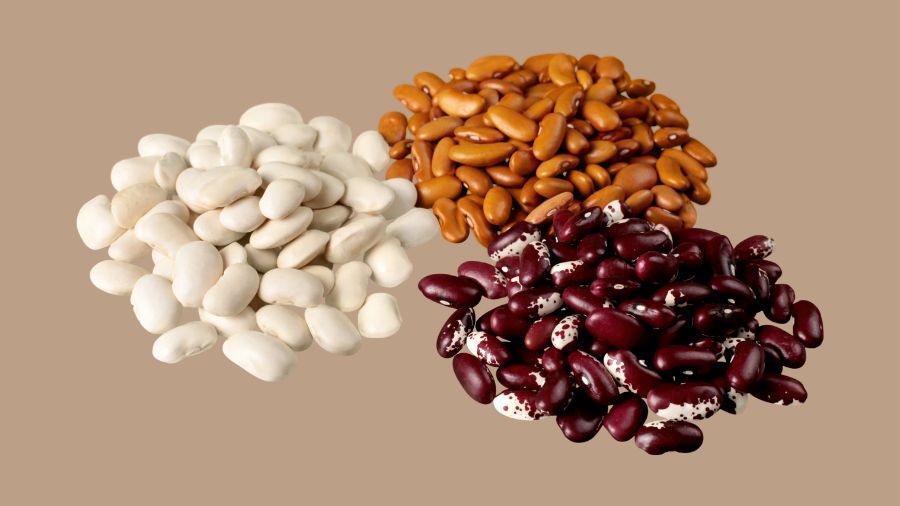Organic Bean Farming Revolutionizes Agriculture Practices Globally

Image: Collected
In recent times, a profound transformation has been observed in global agriculture practices with the widespread adoption of Organic Bean Farming. This shift is not just a change in cultivation methods; it represents a significant move towards more sustainable and environmentally conscious approaches.
Non-GMO Grains have emerged as a driving force behind this agricultural revolution. Farmers worldwide are increasingly recognizing the importance of cultivating grains without genetic modification, aligning with the growing demand for cleaner and healthier produce. Statistical data indicates a substantial uptick in the adoption of non-GMO practices, reflecting a global commitment to food purity.
The focus on Organic Bean Farming extends to the cultivation of Nutrient-Rich Beans, acknowledged as a nutritional powerhouse. Consumers are showing a preference for beans rich in essential vitamins and minerals, leading to a notable increase in the consumption of nutrient-dense beans. This shift is reshaping dietary patterns on a global scale.
Another intriguing aspect of this organic revolution is the renewed interest in Heirloom Grain Varieties. Farmers are recognizing the significance of preserving agricultural heritage by cultivating ancient and time-tested grain varieties. Statistical data highlights a steady rise in the cultivation of heirloom grains, indicating a move towards sustainable and diverse agricultural practices.
Agriculture Beans, viewed from a broader perspective, involve a range of sustainable practices. Precision agriculture techniques and soil health management are becoming integral to optimizing yields while minimizing environmental impact. Statistical analyses underscore the positive correlation between sustainable agriculture practices and the overall health of agriculture bean crops.
Examining market dynamics reveals that the organic shift in bean farming is not merely a trend but a fundamental change in industry dynamics. The demand for organic and sustainably sourced products is influencing market trends, with consumers showing a preference for brands that align with environmental and ethical values.
On a global scale, the impact of Organic Bean Farming transcends national borders. Countries are reevaluating their agricultural policies to promote sustainable practices. The implications for product sourcing are profound, with businesses increasingly recognizing the need to align with ethical and environmentally conscious suppliers.
However, challenges persist on this journey towards sustainable agriculture. Climate change, resource scarcity, and market fluctuations pose hurdles that require collaborative solutions. The industry's response to these challenges will be crucial in shaping the future of sustainable agriculture.
The surge in Organic Bean Farming, accompanied by the cultivation of non-GMO grains, Nutrient-Rich Beans, and Heirloom Grain Varieties, signifies a pivotal moment in agriculture. This shift towards sustainability is not only a business imperative but a collective responsibility towards a greener and healthier future. As the industry continues to evolve, the journey towards a more organic and sustainable agricultural landscape promises a positive and lasting impact on global food systems.
Non-GMO Grains have emerged as a driving force behind this agricultural revolution. Farmers worldwide are increasingly recognizing the importance of cultivating grains without genetic modification, aligning with the growing demand for cleaner and healthier produce. Statistical data indicates a substantial uptick in the adoption of non-GMO practices, reflecting a global commitment to food purity.
The focus on Organic Bean Farming extends to the cultivation of Nutrient-Rich Beans, acknowledged as a nutritional powerhouse. Consumers are showing a preference for beans rich in essential vitamins and minerals, leading to a notable increase in the consumption of nutrient-dense beans. This shift is reshaping dietary patterns on a global scale.
Another intriguing aspect of this organic revolution is the renewed interest in Heirloom Grain Varieties. Farmers are recognizing the significance of preserving agricultural heritage by cultivating ancient and time-tested grain varieties. Statistical data highlights a steady rise in the cultivation of heirloom grains, indicating a move towards sustainable and diverse agricultural practices.
Agriculture Beans, viewed from a broader perspective, involve a range of sustainable practices. Precision agriculture techniques and soil health management are becoming integral to optimizing yields while minimizing environmental impact. Statistical analyses underscore the positive correlation between sustainable agriculture practices and the overall health of agriculture bean crops.
Examining market dynamics reveals that the organic shift in bean farming is not merely a trend but a fundamental change in industry dynamics. The demand for organic and sustainably sourced products is influencing market trends, with consumers showing a preference for brands that align with environmental and ethical values.
On a global scale, the impact of Organic Bean Farming transcends national borders. Countries are reevaluating their agricultural policies to promote sustainable practices. The implications for product sourcing are profound, with businesses increasingly recognizing the need to align with ethical and environmentally conscious suppliers.
However, challenges persist on this journey towards sustainable agriculture. Climate change, resource scarcity, and market fluctuations pose hurdles that require collaborative solutions. The industry's response to these challenges will be crucial in shaping the future of sustainable agriculture.
The surge in Organic Bean Farming, accompanied by the cultivation of non-GMO grains, Nutrient-Rich Beans, and Heirloom Grain Varieties, signifies a pivotal moment in agriculture. This shift towards sustainability is not only a business imperative but a collective responsibility towards a greener and healthier future. As the industry continues to evolve, the journey towards a more organic and sustainable agricultural landscape promises a positive and lasting impact on global food systems.
Tags :
Previous Story
- The Dynamic Landscape of Agricultural Seeds Unveiled
- Organic Agriculture: Growing Sustainably for a Greener Tomorrow
- Flower Farming: Cultivating Beauty and Sustainability in Agricultural...
- Rice and Wheat Farming: Navigating Techniques, Milling Process,...
- Sustainable Agriculture: How Agrochemical Suppliers Are Making a...
- What Are Corn Nuts, and Where Did They...
- US urges meat companies to ensure they don’t...
- Feeding portfolios with agriculture products